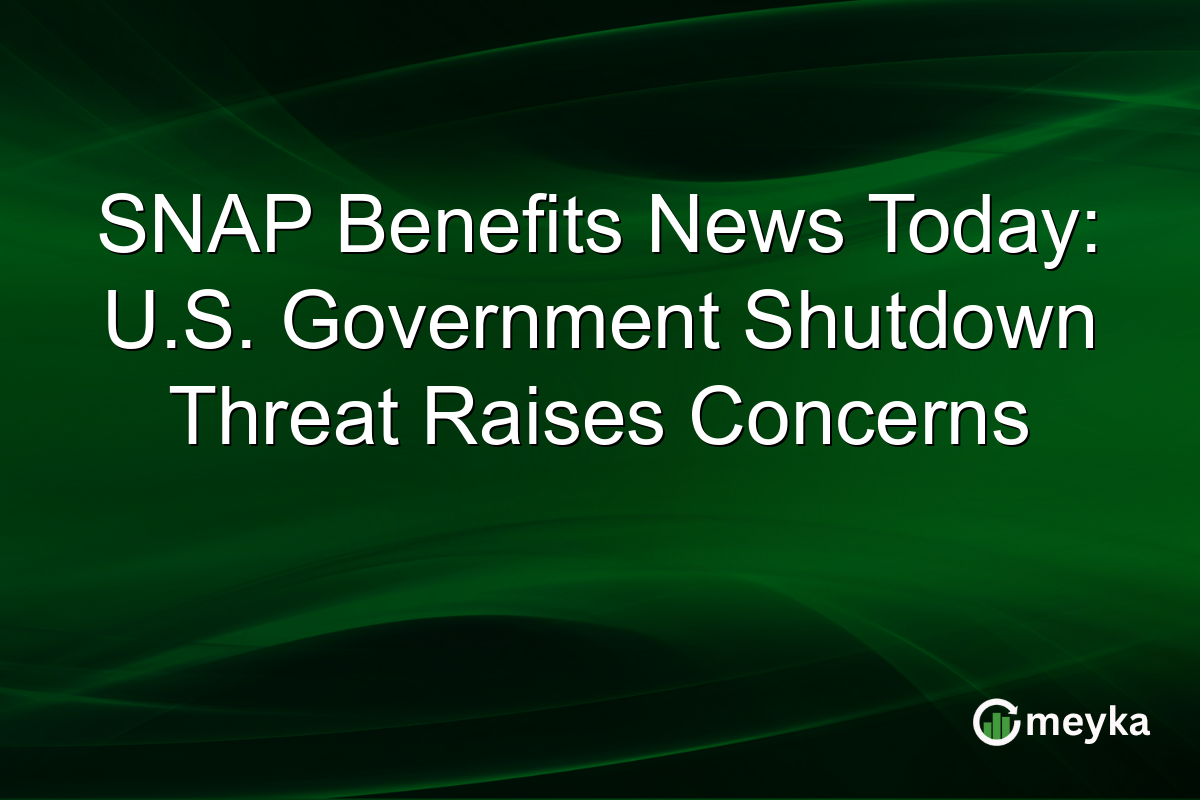SNAP Benefits News Today: U.S. Government Shutdown Threat Raises Concerns
News of a potential U.S. government shutdown has many Americans, especially those reliant on the Supplemental Nutrition Assistance Program (SNAP), worried. As Congress struggles with budget negotiations, the possibility of disruptions in SNAP benefits looms large. This situation not only concerns beneficiaries but also food retailers and Electronic Benefit Transfer (EBT) processors, as they brace for potential market volatility. Explore the critical impacts and insights below.
Government Shutdown and SNAP Impacts
The looming government shutdown creates uncertainty for SNAP recipients. Historically, budget impasses can delay payments, creating financial strain for millions. Recent guidance warns that SNAP benefits might face disruptions if no resolution is reached by the end of the month. This could lead to food insecurity among vulnerable populations.
For more, see the article on CNBC https://www.cnbc.com/2025/10/19/snap-benefits-government-shutdown-impact-food-stamps.html’ rel=’nofollow’>here.
The ripple effects can also hit food retailers and EBT processors, which rely on consistent transactions. This situation prompts concerns over potential chaos in the supply chain, affecting food availability and pricing. Legislators face mounting pressure to ensure continuity in SNAP funding.
Food Stamp Payments and Economic Effects
Delayed SNAP disbursements could severely impact October 2025 payments, crucial for low-income households. These disruptions may reduce consumer spending at grocery stores, affecting market performance within the food sector. Analysts note that legislative inefficiency could cause market dislocation, particularly if gridlock persists into November.
Retail stocks linked to the food sector may experience heightened volatility. Economists argue that seamless SNAP operations are vital for economic stability, particularly for low-income-focused retailers. Congress must act swiftly to mitigate these risks.
Congressional Challenges and Budget Constraints
Congress faces significant hurdles in finding a consensus over the SNAP budget. With competing priorities, achieving an agreement remains difficult. The government shutdown threat complicates negotiations, with lawmakers divided on funding extensions.
For further insights, refer to Reuters article https://www.reuters.com/world/us/snap-food-stamp-payments-risk-delay-amid-us-shutdown-talks-2025-10-19/’ rel=’nofollow’>here.
Such deadlocks can deepen economic disparities as fiscal support mechanisms, like SNAP, experience delays. It is crucial for Congress to prioritize budget resolutions to safeguard critical social support systems.
Final Thoughts
The potential government shutdown poses a significant threat to SNAP benefits, impacting millions of Americans. This situation underscores the importance of timely congressional action to avert financial disruptions. As investors and businesses monitor developments, the outcome will likely have broader economic implications, influencing market stability and consumer confidence. Legislative efficiency is essential to protect vulnerable populations and ensure economic smoothness. The coming weeks will test policymakers’ ability to navigate these fiscal challenges effectively.
FAQs
A government shutdown could delay SNAP benefits, affecting millions of recipients. Payment interruptions may cause financial strain and increased food insecurity among vulnerable populations.
Delayed payments may reduce consumer spending at grocery stores, affecting food sector stocks and causing supply chain disruptions. It underscores the need for consistent fiscal support for economic stability.
Congressional budget talks determine funding for programs like SNAP. Current gridlock threatens to disrupt benefit distributions, impacting economic security for low-income families.
Disclaimer:
This is for information only, not financial advice. Always do your research.






